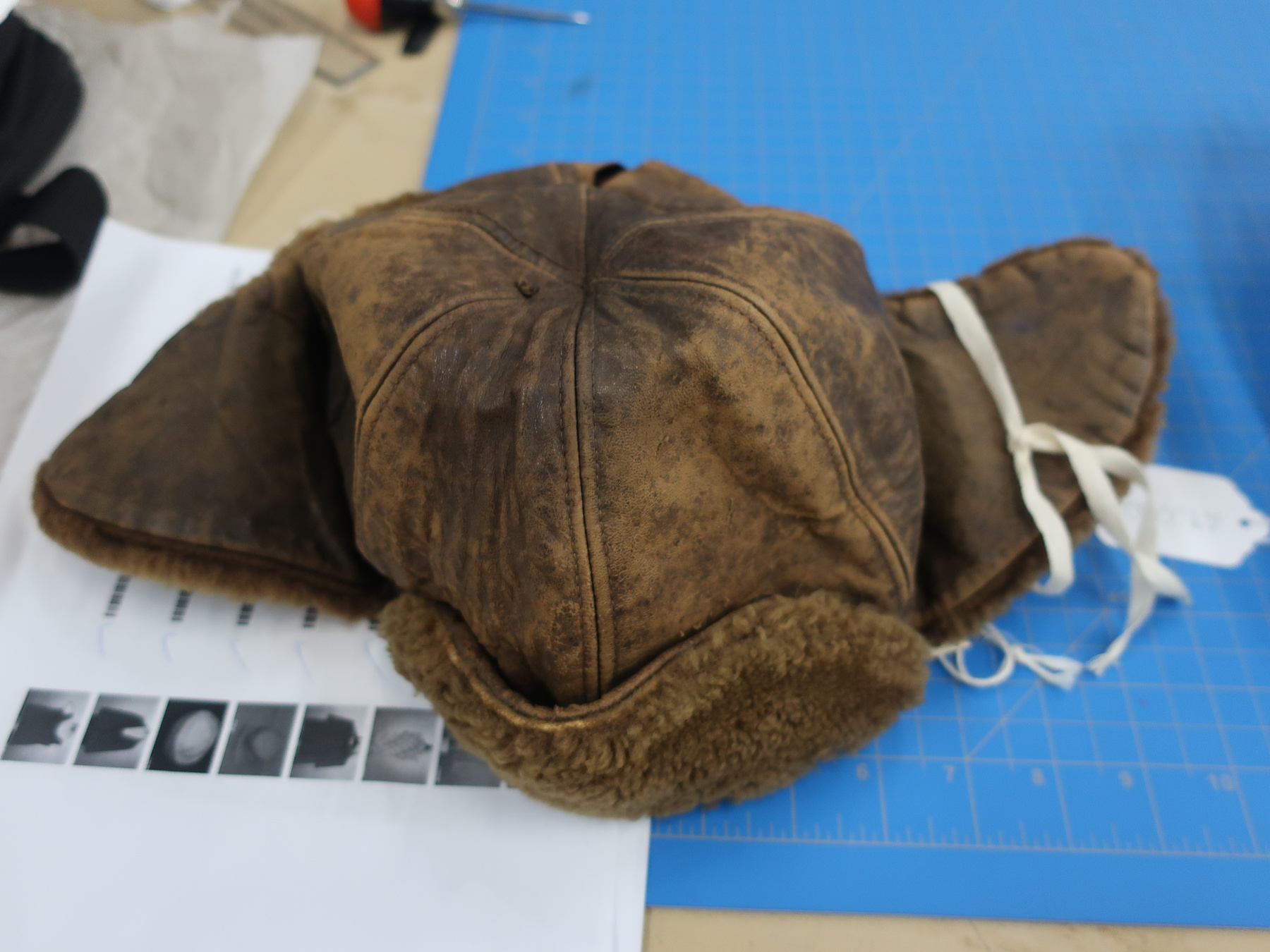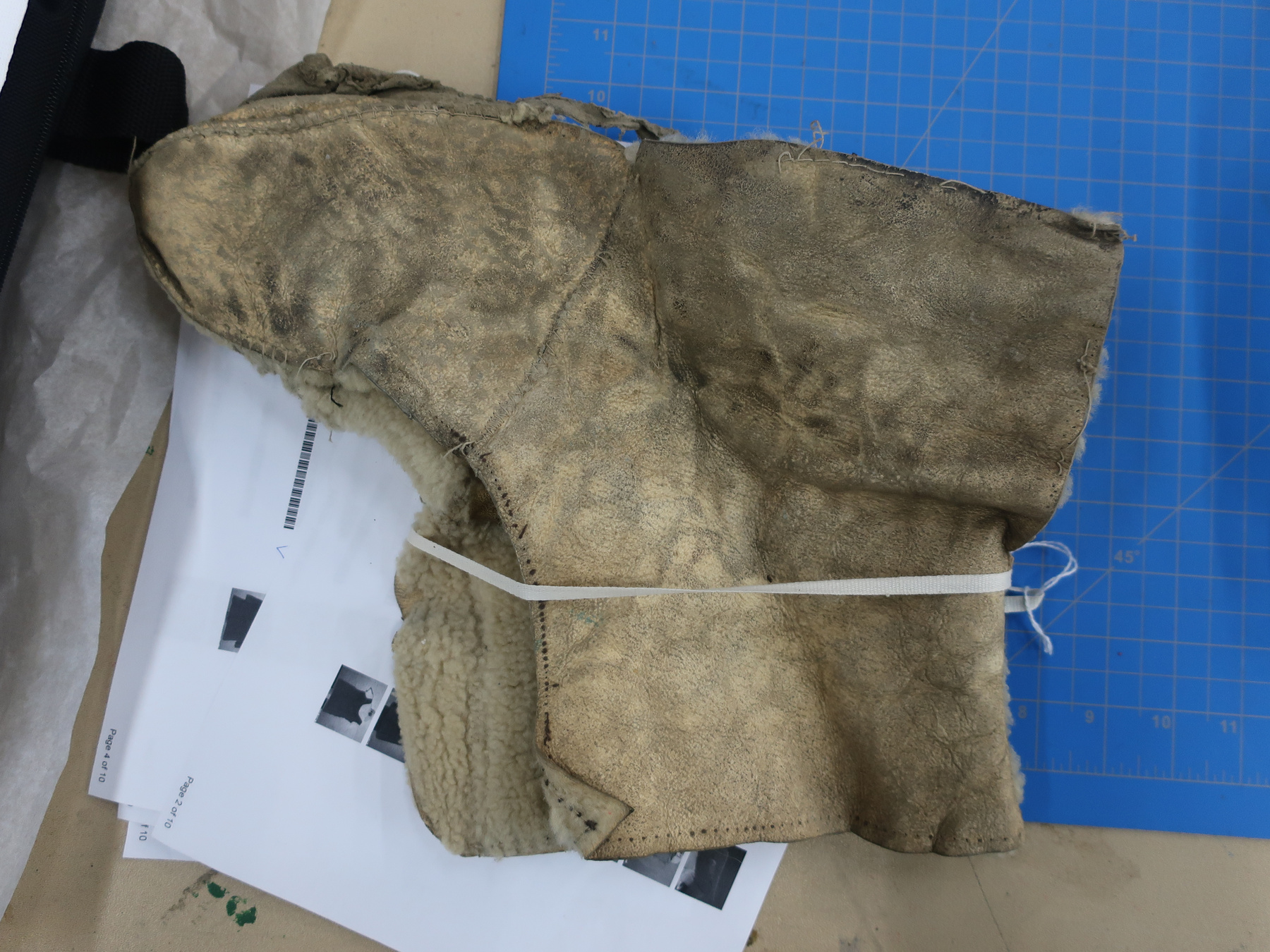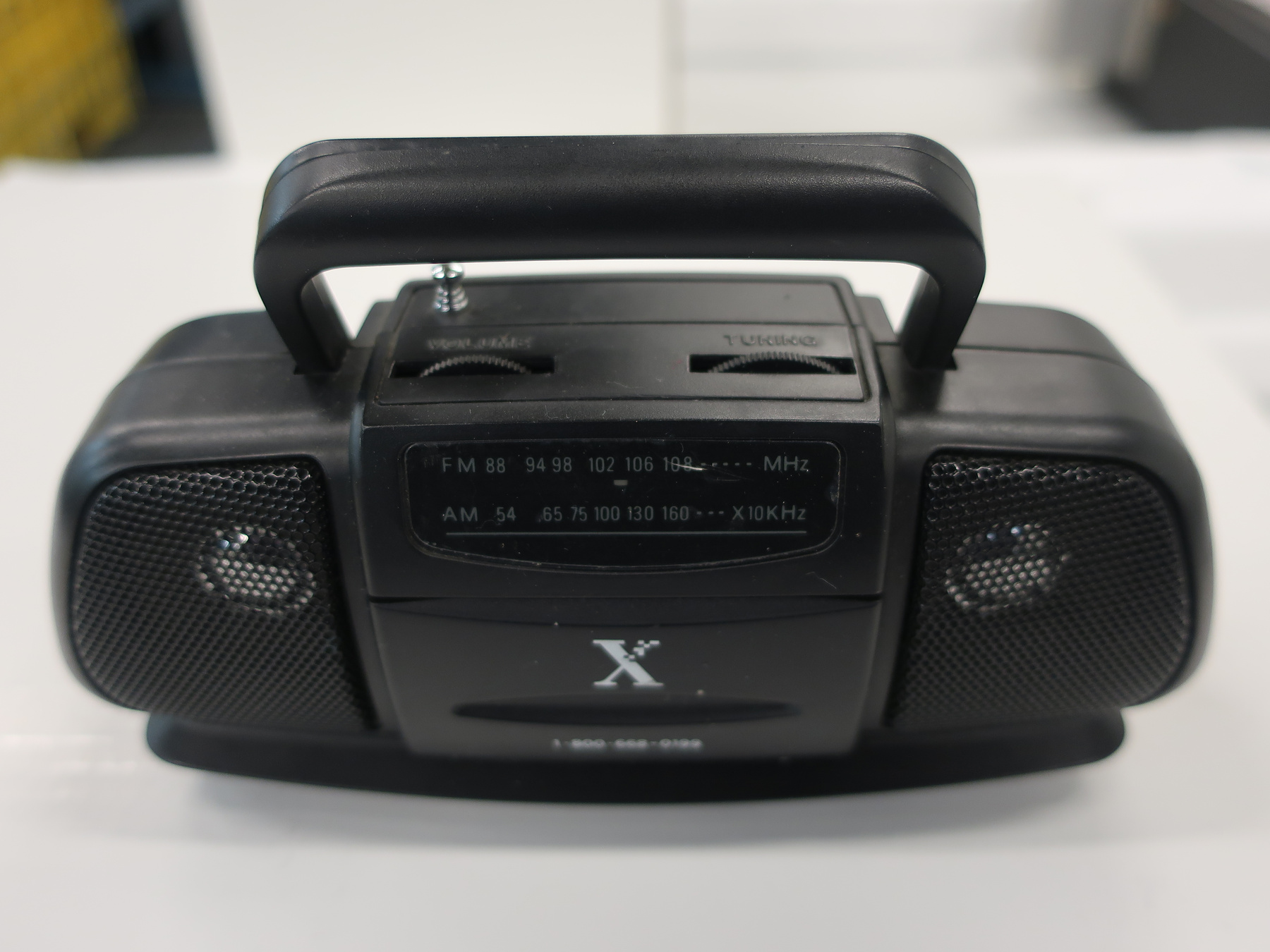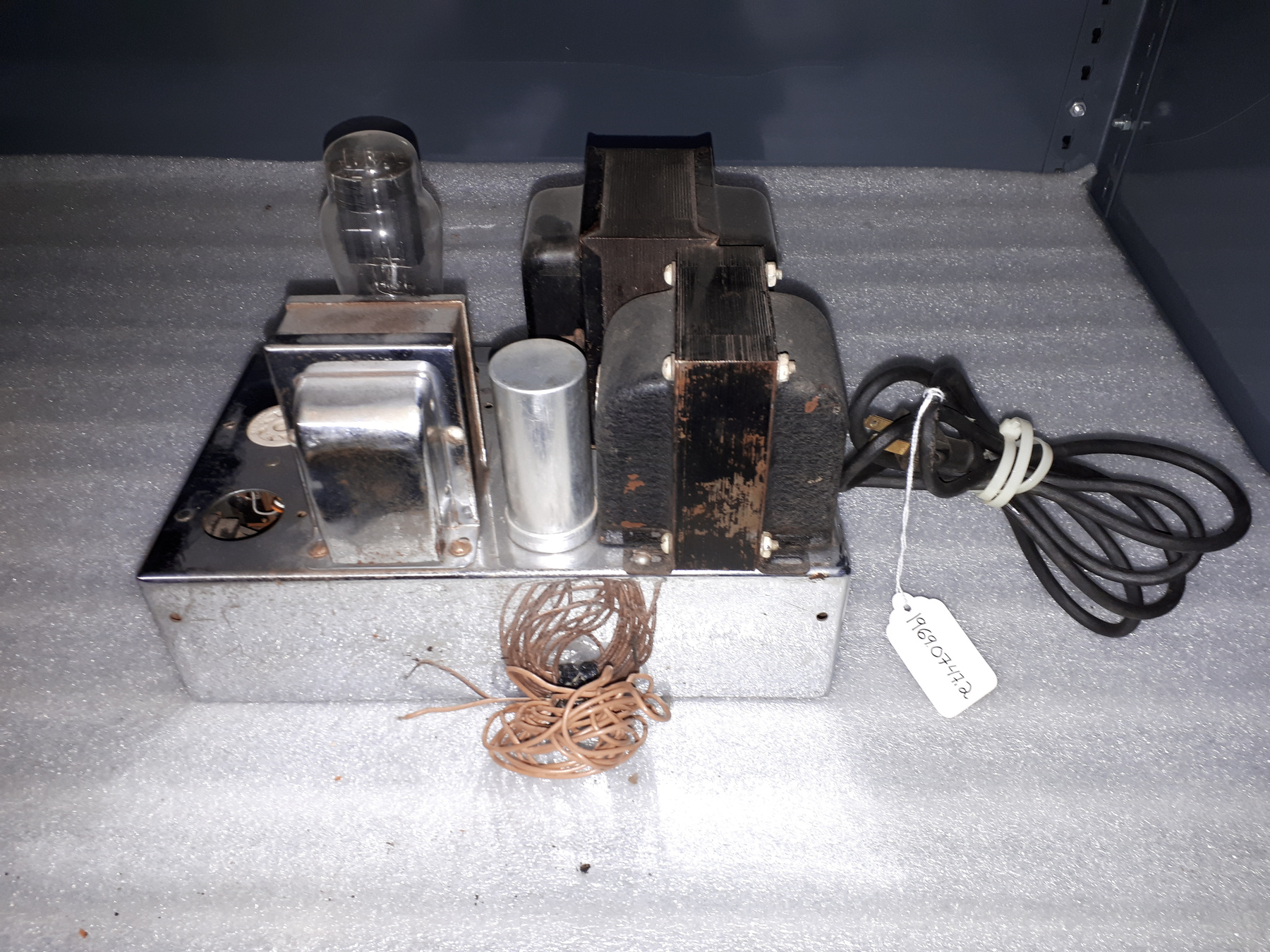Photographie
Utiliser cette image
Puis-je réutiliser cette image sans autorisation? Oui
Les images sur le portail de la collection d’Ingenium ont la licence Creative Commons suivante :
Copyright Ingenium / CC BY-NC-ND (Attribution-NonCommercial 4.0 International (CC BY-NC 4.0)
ATTRIBUER CETTE IMAGE
Ingenium,
2008.0229.009
Permalien:
Ingenium diffuse cette image sous le cadre de licence Creative Commons et encourage son téléchargement et sa réutilisation à des fins non commerciales. Veuillez mentionner Ingenium et citer le numéro de l’artefact.
TÉLÉCHARGER L’IMAGEACHETER CETTE IMAGE
Cette image peut être utilisée gratuitement pour des fins non commerciales.
Pour un usage commercial, veuillez consulter nos frais de reproduction et communiquer avec nous pour acheter l’image.
- TYPE D’OBJET
- glass plate
- DATE
- 1981
- NUMÉRO DE L’ARTEFACT
- 2008.0229.009
- FABRICANT
- Inconnu
- MODÈLE
- A2218
- EMPLACEMENT
- Unknown
Plus d’information
Renseignements généraux
- Nº de série
- A-1380
- Nº de partie
- 9
- Nombre total de parties
- 11
- Ou
- S/O
- Brevets
- S/O
- Description générale
- Glass plate/ photographic emulsion
Dimensions
Remarque : Cette information reflète la taille générale pour l’entreposage et ne représente pas nécessairement les véritables dimensions de l’objet.
- Longueur
- 25,5 cm
- Largeur
- 25,5 cm
- Hauteur
- S/O
- Épaisseur
- S/O
- Poids
- S/O
- Diamètre
- S/O
- Volume
- S/O
Lexique
- Groupe
- Photographie
- Catégorie
- Images photographiques
- Sous-catégorie
- S/O
Fabricant
- Ou
- Inconnu
- Pays
- Inconnu
- État/province
- Inconnu
- Ville
- Inconnu
Contexte
- Pays
- Canada
- État/province
- Ontario
- Période
- 1981+
- Canada
-
One of a collection of photographs of astronomical phenomena, mostly taken by observer E. Hardy of Université Laval, and used at the David Dunlap Observatory at the University of Toronto, one of Canada’s most important astronomical observatories. The David Dunlap Observatory opened in 1935 as the result of a bequest from the wife of David Dunlap. The telescope was a 74 inch (188 cm) reflector built by Grubb Parsons of Newcastle-upon-Tyne in England. The 74 inch was then the largest telescope in Canada (surpassing the 72 inch telescope of the Dominion Astrophysical Observatory in Victoria) and became the second largest in the world after the 100 inch Hooker Telescope of the Mt. Wilson Observatory outside Los Angeles. DDO's reputation grew and following WWII, it began to graduate most of the astronomers produced in Canada with University of Western Ontario far behind. Beginning in the 1960s a number of other astronomy departments were created but UofT/DDO held its place, a position it probably still holds. The DDO had a good technical staff which gave them an advantage and, with most of the 1940s to early 1970s top astronomers coming from UofT, grants from NRC and then ENSERC were almost guaranteed and allowed UofT's top astronomers -- Hogg, van den Berg, Fernie, Bolton, Kamper, Martin, etc. to acquire or build some of the best equipment available in university observatories. For optical observatories, only the DAO had technical staff and budgets that surpassed those of DDO. In 2007, citing increasing light pollution, the University of Toronto announced plans to sell the Observatory property. In June 2008, it was sold to Corsica Development Inc., a subsidiary of Metrus Development Inc. and the Observatory was closed. In 2009 the Observatory buildings and 80% of the site were designated a cultural heritage landscape. Also in 2009 Corsica and the Royal Astronomical Society of Canada, Toronto Centre announced an agreement allowing the RASC to provide public education and outreach programs at the observatory, and to operate the 188 cm telescope. - Fonction
-
A photographic media upon which is recorded a visual image of astronomical phenomena or events, in 2-dimensional format. - Technique
-
An example of a photographic plate of galactic clusters taken by astronomers at the Canada-France-Hawaii Observatory on the island of Hawaii. The observatory is located atop the summit of Mauna Kea, a 4200 meter, dormant volcano and is a combined operation by Canada, France and the state of Hawaii. The CFH observatory hosts a world-class, 3.6 meter optical/infrared telescope which became operational in 1979. Canada’s participation meant valuable access to a world-class telescope for Canadian astronomers. At the time of its inauguration, the 3.6-metre telescope was the sixth largest in the world and operated in the range of visible light and infrared. France launched the project in 1970 with the purchase of a 14-tonne glass disk. The state of Hawaii joined the project in 1971, followed by Canada in 1973. The three partners signed an agreement in 1974 and the Canada-France-Hawaii Telescope Corporation was born. Canada was in charge of polishing the mirror, putting into place a control system for the telescope, and constructing the observatory building. France was responsible for constructing specific mechanical parts for the telescope (tube, frame, etc.), and Hawaii provided the site, a road to the site, and several instruments. In 1977, the headquarters and a library were set up in the nearby town of Waimea. Canada was granted access to 42.5% of the available observation time, France 42.5%, and the United States 15%. Despite the fact that its 3.6-metre telescope was not the largest, the Canada-France-Hawaii telescope was nonetheless the most powerful in the world from its first year of operation 1994 when the Hubble Space Telescope became fully operational. During that time, the exceptional site, the superior quality of the telescope’s mirror, and the constant improvements to its instruments contributed to the observatory’s ability to generate the highest resolution images ever produced. In 1996, an adaptive optics system was installed on the telescope that would once again rival the Hubble Space Telescope in the production of the highest resolution astronomical images. [Adaptive optics is a technique that corrects image distortions due to air turbulence in Earth’s atmosphere, such as that which causes the twinkling of stars. After these improvements were made, the CFH observatory was involved in discovering, or confirming the discovery of, many new moons, gravitational lenses and other phenomena. In 2003, a new imaging system was installed called MegaPrime, which uses the French-designed MegaCam camera that is able to take 340-million pixel images (about 18,400 x 18,400 pixels), making it the most powerful camera of its type in the world. Today, the observatory is involved in the study of the solar system, the birth and evolution of stars, the interstellar medium, the structure and content of galaxies, galaxy clusters, and large-scale structures of the Universe. The Canadian participation in the observatory is managed by the National Research Council of Canada’s Herzberg Institute of Astrophysics [Refs. 2-3]. This group of five glass plates were taken with the PF camera of CFHT by Hardy (A2397, A2645, A2218) and Quintana (A2125), 1980/81. - Notes sur la région
-
Inconnu
Détails
- Marques
- None
- Manque
- Complete
- Fini
- Black and white image on colourless, transparent glass
- Décoration
- S/O
FAIRE RÉFÉRENCE À CET OBJET
Si vous souhaitez publier de l’information sur cet objet de collection, veuillez indiquer ce qui suit :
Fabricant inconnu, Photographie, vers 1981, Numéro de l'artefact 2008.0229, Ingenium - Musées des sciences et de l'innovation du Canada, http://collection.ingeniumcanada.org/fr/id/2008.0229.009/
RÉTROACTION
Envoyer une question ou un commentaire sur cet artefact.
Plus comme ceci




































































































